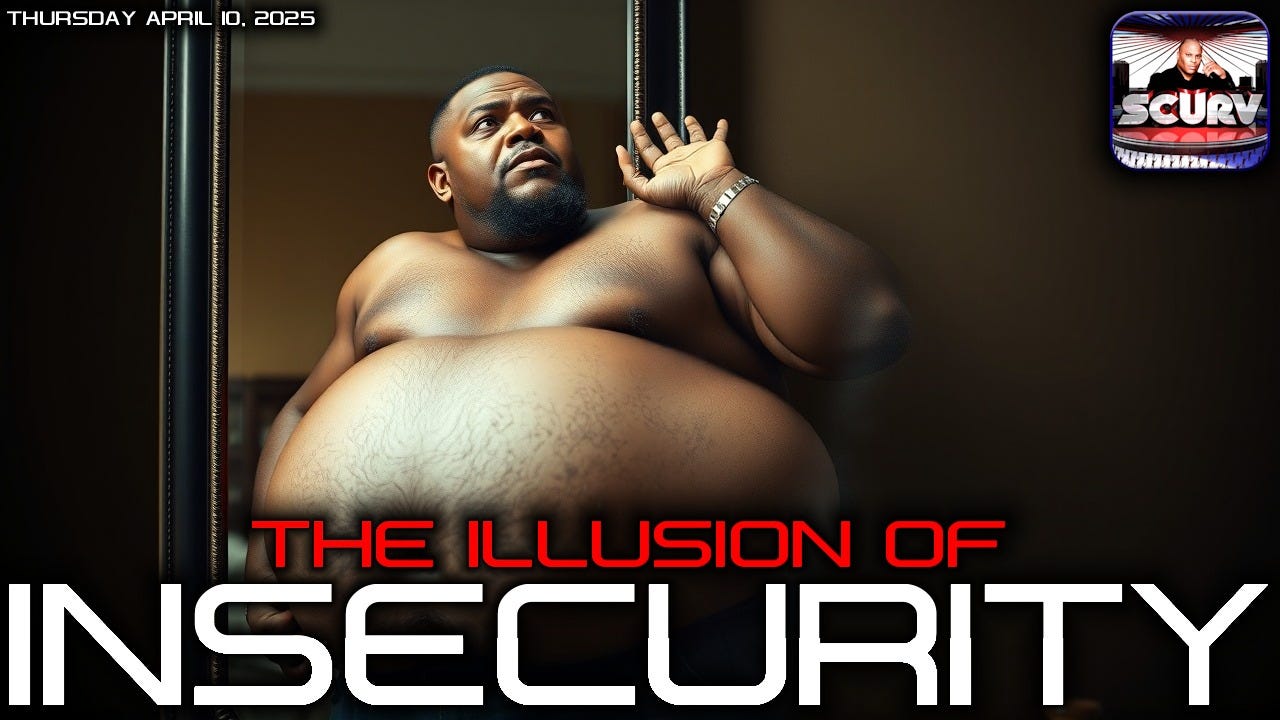THE ILLUSION OF INSECURITY...
Look at yourself in the mirror.
No, seriously—observe yourself carefully.
What do you see?
Wait, don’t answer just yet. Let me guess.
The first thing that came to mind probably wasn’t something you liked, right? It was that little imperfection no one else notices, but that you see in high definition—every single time.
How big is your insecurity?
Maybe it’s your height—the centimeters you think you're missing. The gap that seems to separate you from your dreams more than anything else in this world. You imagine everyone notices it, talks about it, judges your worth by it.
But let me give you a brutal dose of truth:
No one is paying as much attention as you think.
Those missing centimeters? Only you remember them. And yet, they drag you down, day after day, night after night, pulling you into a pit of insecurity that feels bottomless.
The uncomfortable truth?
No matter how tall you are, your insecurity will always seem bigger. The problem isn’t your height. The problem is the yardstick you use to measure yourself.
And that yardstick?
You didn’t design it.
It was handed to you—by society, by family, by strangers who never really knew you. And somewhere along the line, you accepted it without question. You’ve been living in a prison of other people’s standards, mistaking them for your own.
Who decided you should be taller?
Was it your parents? The sly glances? The cruel jokes disguised as humor? It wasn’t your height that defined your worth—but what you were taught to believe about it.
Insecurity is not a physical defect.
It’s a mental trap—perfectly engineered by a society obsessed with unattainable ideals.
But here’s the mystery:
Why do you let those standards define who you are?
Why do you chase the validation of people who don’t even validate themselves?
Comparison is a subtle poison you swallow daily. It eats away at your self-esteem, sabotages your relationships, silences your dreams. And the cruelest twist of all?
It’s not even your voice that criticizes you in the mirror.
It’s the echo of a broken society.
While you waste time agonizing over your perceived flaws, life is passing you by.
Opportunities slip through your fingers because you’re worried about centimeters no one else cares about.
Here’s something real:
Everyone has an insecurity.
Maybe not height—but weight.
The shape of their nose.
The texture of their hair.
The shade of their skin.
Everyone’s fighting a silent war with something they didn’t choose. Yet we pretend, isolate, and suffer—alone.
We unite in insecurity, but distance ourselves for fear of judgment.
So what’s the way out?
Radical self-acceptance.
Genuine compassion for yourself and others.
Sounds cheesy, right? But try it—just for a moment.
Try fully accepting yourself: your height, your scars, your history.
Acceptance isn’t giving up—it’s freedom.
When you accept yourself, you strip others of the power to use your insecurities against you. Because real confidence doesn’t come from having no flaws—it comes from refusing to be ashamed of them.
So ask yourself:
If you woke up tomorrow completely free from the fear of judgment, what would you do?
Who would you become?
That version of you—the free one—isn’t far away.
It’s just on the other side of the wall you built with others’ opinions.
Here’s the secret no one tells you:
Your insecurities can become your greatest strengths.
When you accept your perceived flaws, no one can weaponize them.
Because power doesn’t come from perfection—it comes from authenticity.
So go back to that mirror.
But this time, look deeper.
See the person you truly are—dreams, scars, fears, and all.
Because beneath that imperfection lies your essence—the reason you’re worth knowing, worth loving, worth respecting.
Your insecurity? It’s just a shadow cast by a badly angled light. Reposition it. Shine it inward. Illuminate your values. Your truth.
And then watch what happens.
You’ll realize that your “weaknesses” were never weaknesses at all.
They were the foundation of your identity.
Because the hardest battle you’ll ever fight is not against the world—but against your own distorted perception.
Win that battle, and you’ll be truly free.
Free to live.
Free to love.
Free to be.
Bonus Reflection:
Do you know what hides behind your insecurity?
A desperate, almost silent need for external validation.
Each time you seek approval from others, you surrender a piece of your identity. Slowly. Quietly. Until you forget who you are without someone else’s opinion.
You become addicted to approval—likes, compliments, fleeting affirmations. But those are temporary. And when they fade, you're left with emptiness and a louder insecurity.
Here’s a tough question:
Who would you be without the opinion of others?
If you can answer that truthfully, you’ll begin to understand who you truly are—and who you could become.
Because the person who doesn’t flinch when approval is withdrawn is the person who’s built on solid ground.
That person… is you.
Even if you don’t see it yet.
Insecurities are often inherited.
You may be carrying emotional burdens that aren’t even yours.
Your father’s shame. Your mother’s self-doubt. Society’s impossible standards passed down like emotional heirlooms.
You have the right to say: This isn’t mine.
You can love your family. But you don’t have to carry their pain.
That’s emotional freedom.
That’s your birthright.
So stand tall—however tall you are.
You were never meant to fit into someone else’s box.
You were meant to live, love, and lead—unapologetically.
Let me know what you think…





very thought provoking and great information
❤️